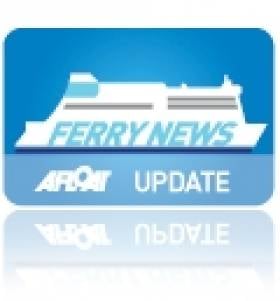Displaying items by tag: Irish ferryport
Rosslare Europort to Host Irish Ports Conference
This year's Irish Ports Conference is to be hosted by Rosslare Europort on behalf of the Irish Port Association (IPA) and is to take place in Wexford on 30th September.
The event is the only one of its kind in Ireland this year where senior representatives from short-sea users, carriers, ports, logistics providers and the whole range of service providers meet to debate the topical issues of the day.
In addition the full-day conference provides those to network and explore further business opportunities and will culminate with the IPA's conference banquet.
The south-eastern ferry-port is to host delegates in the Ferrycarrig Hotel, just outside Wexford. For further information on booking and a (PDF) programme of the day visit the Rosslare Europort website by clicking HERE





























































